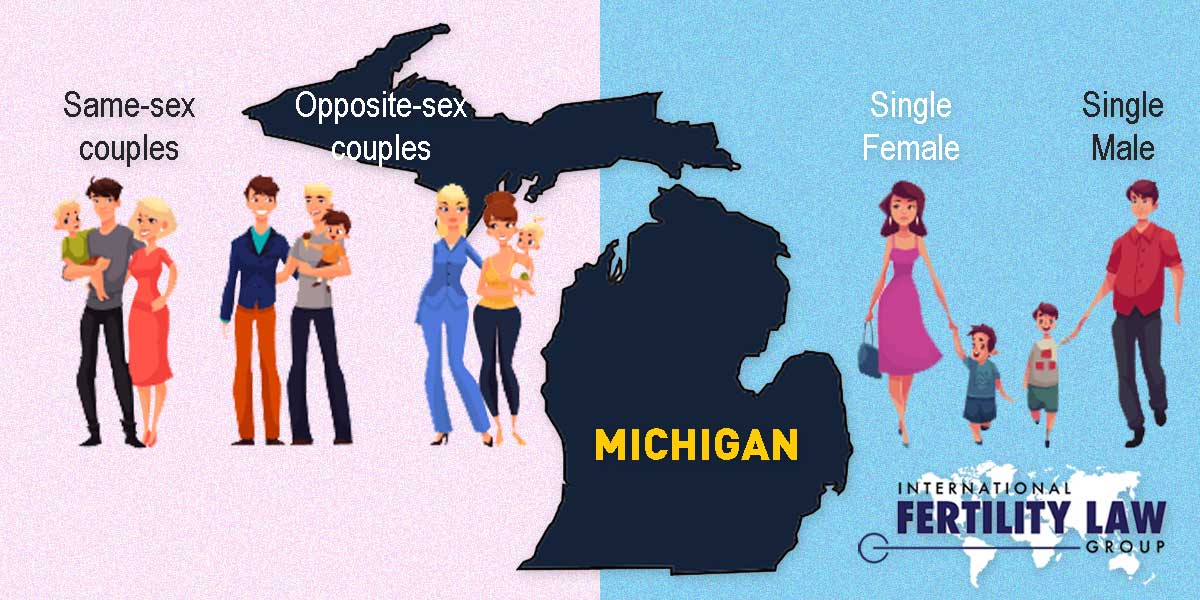
03 Feb 2021 Outdated Michigan Surrogacy Ban Forces Parents to Adopt Their Own Twins
Michigan couple Tammy and Jordan Myers, biological parents of twins born via surrogacy January 11, must adopt their own babies in order to become their legal parents. That’s because little Eames and Ellison were born via surrogacy in a state where the law considers a surrogate and her spouse to be the legal parents rather than the intended parents—even when both parents are genetically related to the child.
As I told The New York Times recently for an article about the Myers case, when it comes to surrogacy law, “there is really no other state quite like Michigan.”
Michigan Surrogacy Law Unique in Nation
Michigan is unique in the nation in that it does not legally recognize any form of surrogacy agreement, whether the surrogacy is compensated or altruistic, and does not recognize the rights of the intended parents. Michigan requires parents of babies born via surrogacy to either obtain a court order recognizing them as parents or to adopt their own children.
Under Michigan law, paying for surrogacy is a felony punishable by up to five years in prison and a $50,000 fine. But the Myerses, who sought to have a second child after Tammy’s cancer treatment left her unable to give birth, found an “altruistic” surrogate, a woman moved by their plight who volunteered to carry their baby without compensation.
The Times article reports that Michigan courts have granted parental rights to parents of babies born through surrogacy at least 72 times since 2005. But so far, the Myerses have not been so fortunate.
The twins’ birth certificates list the surrogate and her husband as parents, not Jordan and Tammy Myers. Twice Michigan courts have denied the Myerses’ request for recognition as the babies’ legal parents—despite affidavits from a fertility doctor attesting they are the biological parents and affidavits from the surrogate and her husband that they are the parents.
Now, the Myerses have begun the adoption process—the only legal path available remaining to them to establish parentage. Even though they also are parents of a happy, healthy 8-year-old daughter, conceived naturally and born before Tammy contracted breast cancer, they will undergo “home visits from a social worker, personal questions about their upbringing and their approach to parenting, and criminal background checks,” as the Times reported. They have submitted their fingerprints for a criminal background check. The surrogate has granted them “temporary permission” as required by Michigan law to bring their babies home.
New York Ends Surrogacy Backlash to ‘Baby M’
Michigan was one of several states that enacted surrogacy bans in the aftermath of the tragic 1986 “Baby M” case, which pitted a New Jersey surrogate and biological father against one another over custody of the child. Michigan’s strict surrogacy ban, enacted in 1988, is the last remaining in the United States—although surrogacy is subject to tough restrictions in some states. New York’s Child-Parent Security Act, a sweeping package of surrogacy and parentage law reforms, will take effect February 15, 2021.
In recent months, reproductive medicine professionals, advocates and legislators have been working together in Michigan to develop a commonsense, humane update to the state’s punitive surrogacy law, although a legislative sponsor has yet to commit. The much-needed reform won’t come soon enough to relieve Tammy and Jordan Myers of having to adopt their own genetic children—but maybe their story will help the public and their legislative representatives understand the prejudice and unfairness of a law that punishes people simply because they used a miraculous technology to complete their family.
Laws governing surrogacy, assisted reproduction and parentage vary widely from state to state and from country to country and change continually as more and more people use assisted reproductive technology (ART) for familly creation. An experienced ART attorney will help you understand the legal requirements in the jurisdiction where your baby will be born via surrogacy and where your family will reside. Contact the team at IFLG for your surrogacy and parental establishment questions.

















